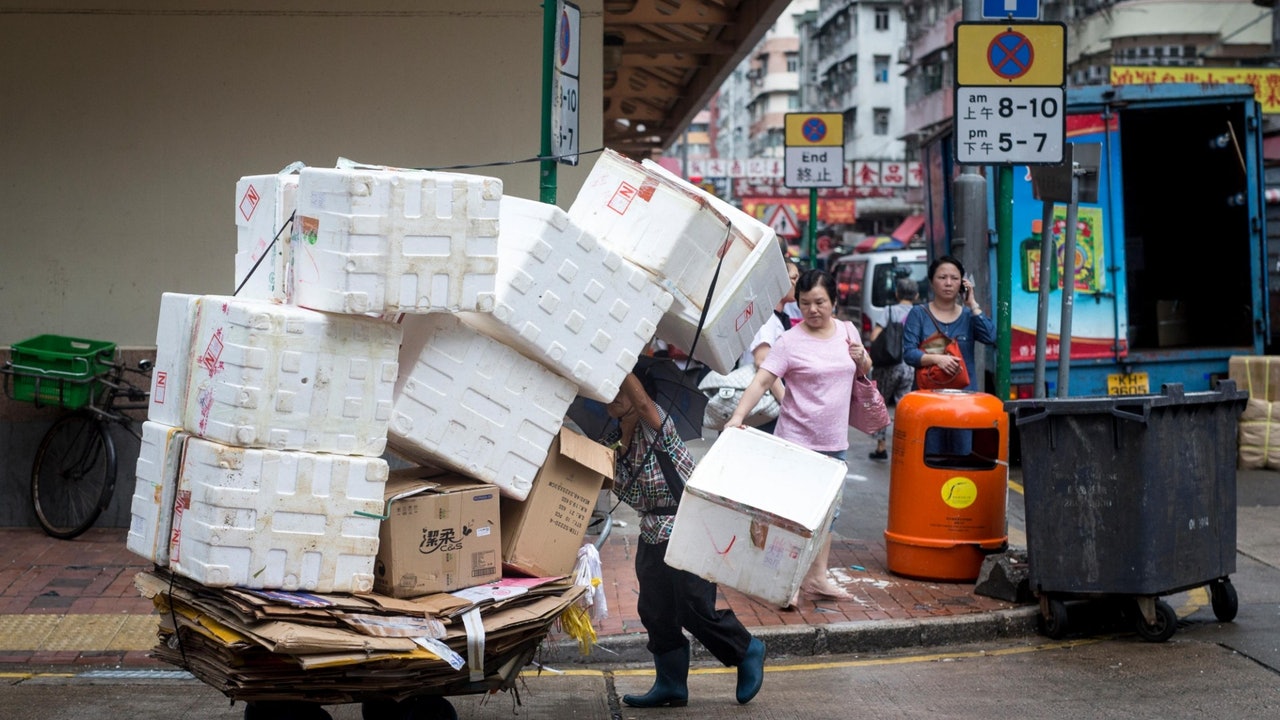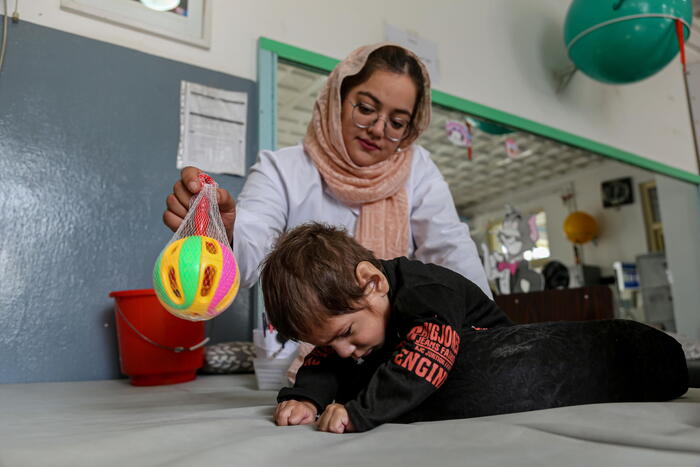01 view
Written by: Commentary Editing Room
2021-01-26 17:53
The last update date: 2021-01-26 17:53
Oxfam issued a report on the opening day of the World Economic Forum on Monday (25th), warning that the new crown pneumonia epidemic has aggravated the gap between the rich and the poor. Back to the pre-epidemic level.
In addition to cheap vaccinations for everyone, the report recommends that global giants and wealthy individuals pay a single tax in the short term to meet the expenditures of countries fighting the epidemic and supporting the weak, and to ensure that those who can pay more.
Both Hong Kong and other governments have introduced unprecedented stimulus measures, but they have failed to focus on the needs of the grassroots. Many people still have to cut back on food and clothing, and their work is still precarious, which proves that the policies have not benefited all people.
The Hong Kong government should review and revise policies to stop the deterioration of inequality.
Oxfam’s report is titled "The Inequality Virus", highlighting that the world not only needs to overcome the new crown pneumonia virus and the widespread poverty caused by the epidemic, but also social and economic inequality.
In terms of inequality, the target is not only the poor, but also the wealthy.
The report denounced governments and central banks of injecting trillions of funds into the financial markets. Although the stock market avoided a crash, the wealth of the giants holding stocks skyrocketed, and the people could not benefit.
The disparity between the rich and the poor in Hong Kong is getting worse.
(Photo by Ou Jiale)
The richest people "recover lost ground" in nine months of wealth
Looking at Hong Kong, the disparity between the rich and the poor has long been seen by passers-by. In recent months, the stock market, the unemployment rate, and the number of people seeking help from the food bank have all increased, indicating that class polarization has become more serious.
What is surprising about the report is that the speed and ability of the rich and poor to respond to the wealth epidemic is extremely different. Even though the wealth of the world’s top thousand billionaires fell by nearly 30% from February to March last year, they only used It was almost recovered in nine months.
On the contrary, experts estimate that if the Gini coefficient is allowed to rise by 0.02 each year, by 2030, the number of poor people with a daily income of less than US$5.5 will be 200 million more than in 2019.
As long as the government is willing to drastically reduce poverty, it will be able to stabilize the livelihood of the poor.
The report estimates that the annual Gini coefficient is narrowed by 0.02 in various regions every year, and then the poor population will fall back to the pre-epidemic level after three years.
To achieve this goal, on the one hand, the government must implement economic protection and prohibit labor squeeze, including raising the minimum wage, and supporting enterprises to treat employees well.
On the other hand, the government must invest sufficient resources in public services and infrastructure to promote a green economy and improve public health care.
The spokesperson of the Social Welfare Anti-Poverty Alliance suggested at today’s press conference that there are several ways to consider and try to narrow the gap between the rich and the poor in Hong Kong, including providing welfare to the grassroots to bring the quality of life of different classes closer, and to increase the income of the grassroots. Improve the social security system and review and reorganize the tax system.
(Provided by interviewee)
Restricting the rich and helping the poor prevent the disparity between the rich and the poor from worsening
In this way, open source is a must.
The report recommends that a single tax be levied on global giants that make a lot of money under the epidemic in the short term, and cited Argentina as an example.
At the end of last year, its Congress passed a tax of 2 to 5.25% to 12,000 wealthy people with assets of at least US$2.3 million. It is expected that the total tax amount will be US$3 billion, which will be used to supply medicine and relieve small and medium-sized enterprises and poor people.
In fact, this type of taxation proposal is recognized by even the senior officials of the International Monetary Fund. Chief economist Gita Gopinath proposed a "solidarity tax" in an interview last May to help developing countries reduce debt and restructure debt.
It is true that many wealthy people have set up funds and donated money to support vaccine development, production of anti-epidemic materials, and relief to the grassroots. However, the amount of donation is purely voluntary, and it has not been possible for all wealthy people to give back to the society on the principle of paying more for the rich.
Furthermore, the government's implementation of infrastructure, personnel training, and other projects is fairly fair, and the government has justifications for taxation.
In addition, when the government has sufficient tax revenue to cope with the reconstruction after the epidemic, the government can temporarily delay or even reduce other taxes levied on the middle and lower classes, such as salaries tax and rates, to reduce their burden.
Why is reform so difficult to take place in Hong Kong, and why can't social grievances get proper attention?
(Profile picture / Photo by Liang Pengwei)
In Hong Kong, even though the treasury is facing a fiscal deficit of nearly 300 billion yuan, the financial strength of the Hong Kong government is still far better than other places that rely on debt issuance to survive. It has spare capacity to use reserves to support the citizens whose wages have been cut or laid off. Therefore, the demand is based on the exhaustion of the treasury. Tax collection is difficult to obtain support from all walks of life.
Over there, history tells us that the cause of a lot of social unrest is the disparity between the rich and the poor.
The Oxfam report just warned the government. The disparity between the rich and the poor has surpassed previous expectations.
The next year’s budget is imminent. The government should levy taxes on the most capable and redistribute the taxes so that society will suffer the least impact.
Although the government and the people are also afraid of tax increases, as long as the government clearly lays out the purpose of tax collection, promises to avoid waste, and aims to solve the accumulated habits, unite the society, and lead the economic transformation, the tax increase proposal will surely be recognized by all classes.
[New Coronary Pneumonia] Under the epidemic, the rich have more money, and the social crisis is followed by?
The economy continues to improve and citizens are homeless?
【Budget】Reform the tax system and increase expenditure. Public funds must be used properly
New Crown Pneumonia Oxfam World Economic Forum








